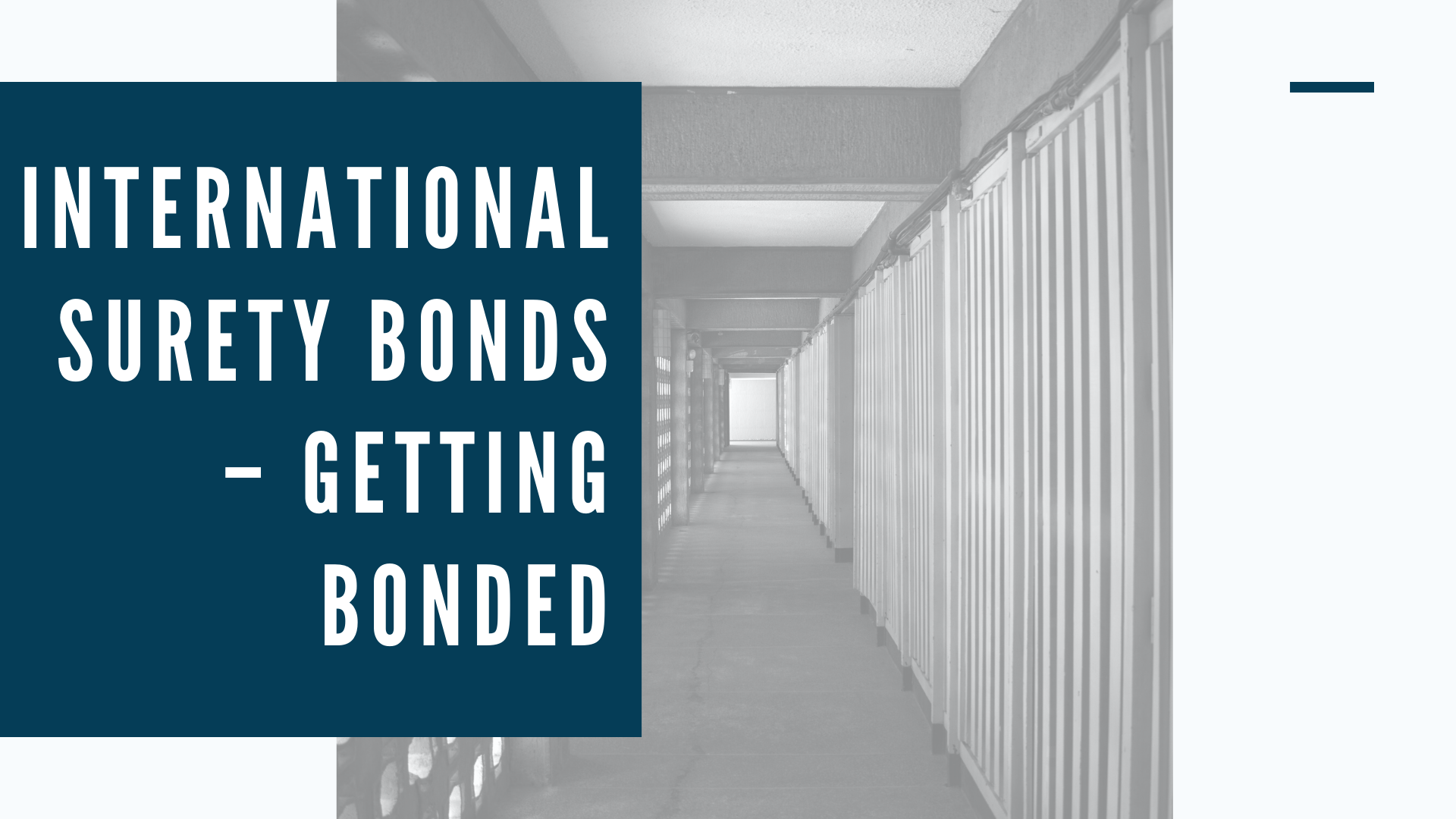What is an International Surety Bond?
An International Surety Bond is a contract between two parties: the principal and the surety. The duties and responsibilities of both parties, as well as the terms and conditions that govern the agreement, are outlined in the bond.
The role of the surety in an international bond is to protect against financial loss if their customer (the principal) fails to meet their obligations under the terms of the contract. To do this, surety agencies create a contractual relationship between themselves and their customer’s principal. In doing so, they assume one or more of three basic roles:
- The insurer – if the agreed-upon activities result in damages that are covered by another policy, then the surety will pay the damages up to the limits outlined in the bond.
- The guarantor – if the principal defaults and it is necessary for the surety to fulfill their obligation, they will do so at their own expense.
- The creditor – if claims arise from an unhappy customer, they can file a suit against both the principal and the surety to recover their losses.
How does the International Surety Bond work?
The surety will work with the principal to outline the terms that define who is responsible for what, and which party is liable in the event of a liability claim against the client. The bond is issued when both parties agree upon these terms and sign off on them. Both parties must abide by these rules or they may be liable to financial damages or other consequences.
The surety’s financial strength is a significant factor in the decision to approve an international bond. Many countries require a strong, reputable company to stand behind their customers’ activities and ensure that their failings are covered for up to the entire value of the bond.
If a principal fails to make a payment or violates another term of the contract, the surety has to fulfill this obligation at their own expense. This means they must come up with full compensation for any damages or costs involved before they can be reimbursed by the customer (known as “the principal”).
Who is eligible to get an International Surety Bond?
The applicant that is applying for an international bond must meet several requirements. They cannot have any outstanding debts to the contracting agency, they cannot have any past violations of contracts with federal agencies or had fines imposed for inappropriate activities, and either personal or corporate credit history must be clean.
Although surety bonds are often requested by private companies, federal and state governments may require them in order to protect both customers and the government from financial liability in certain situations. There are specific types of International Surety Bonds that can be issued depending upon what customer needs and their industry type:
- International Performance Bond – obligates a company to fulfill its contractual obligations for goods or services it provides to customers around the world.
- Tax or Revenue Bond – This type of bond is issued as a method of securing the payment of taxes, fees, and fines collected by public agencies such as state and local governments.
- Federal Contractor’s Bond – required by federal government agencies for contractors who must put up bonds to show that they will complete their projects or provide services as agreed upon in the contract.
How can you get an International Surety Bond?
In order to obtain an international surety bond, the applicant must submit an application. The process for obtaining one usually involves three steps:
- Choose a surety agency that can provide your needs and request information on the bonding process. They will schedule you for an interview where they ask questions about your company’s history, financial solvency, and the likelihood of fulfilling contractual obligations in the future.
- When ready, they’ll conduct a review of your company’s credit history. If everything is satisfactory with their requirements, they may choose to issue you a formal proposal detailing the terms of the contract and fees associated with it. You will be expected to pay all premiums upfront when submitting this proposal.
- When both parties agree to the terms of the contract, the bond is issued and you are officially bonded.
How much does it cost?
The price of an international surety bond can vary based on several criteria including geographical location, industry type, credit history background, values of the contract, and how often bonds are required.
Although bond amounts may vary, they usually top out in high six-figures if a large multinational company with positive credit requests one in order to ensure that they will fulfill their duties in accordance with the agreement.
What happens when you are denied getting an International Surety Bond?
In some cases, the surety company decides not to issue a bond after reviewing your application. In this situation there are usually four options:
- If the surety feels that you do not have enough financial solvency or positive credit history, they may ask you to wait until these things change before submitting another proposal for consideration.
- They can suggest alternative forms of security such as trust funds, government guarantees, and unpaid balances on existing international bonds that you hold.
- You can negotiate a settlement with the agency involved in order to get out of the contract without being charged for defaulting on it. This means you would have to pay up all costs associated with executing the agreement along with any remaining fees from the original proposal.
- In some cases, you can cancel the contract without incurring additional costs associated with executing it or breaking a deal with an international client or business partner.

